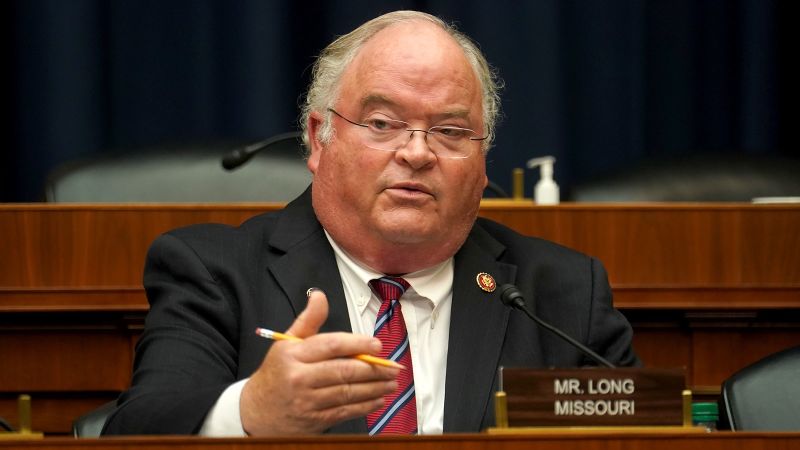Since the inauguration of former President Donald Trump, the Internal Revenue Service (IRS) has seen a troubling turnover that has led to disarray within the agency. Throughout Trump’s term, the IRS experienced the departure of four acting leaders and has been mired in administrative struggles. Despite Trump nominating former Republican Representative Billy Long in December to serve as the full-time IRS commissioner, the Senate has yet to schedule a confirmation hearing for his appointment.
Long’s nomination has stirred considerable debate. He previously spearheaded legislation aimed at abolishing the IRS and his close ties to Trump are seen positively by the former president and his supporters, who believe Long is the right fit due to his established relationships on Capitol Hill. However, Senate Democrats have raised concerns about Long’s past involvement with a tax credit program that has faced scrutiny due to alleged frauds, as well as suspicious contributions from entities engaged with the IRS. This has led to ethics experts voicing their apprehensions regarding the timing and motivations behind Long’s political contributions.
The timeline for Long’s confirmation is unclear, and as the weeks pass, many current and former IRS personnel express their worries that the drawn-out process is leaving the agency without effective leadership. Kathy Pakenham, a prominent tax attorney, articulated the agency’s urgent need for a new leader, noting the pervasive anxiety among IRS employees regarding job security and the organizational direction.
Despite the Republican majority in the Senate, a swift confirmation for Long has not transpired similarly to previous high-profile appointments. Notably, Treasury Secretary Scott Bessent took action by placing Michael Faulkender, a deputy from the Treasury Department, in the latest acting IRS commissioner role to mitigate the turmoil.
Billy Long, who boasts a substantial background as an auctioneer and small business owner from southwest Missouri, transitioned into politics and maintained a record aligned with conservative values during his tenure in the House of Representatives. His proposals even extended to eliminating most federal income taxes, a radical move that resonates with the more libertarian faction within the Republican Party.
Long anticipates some support for his nomination, particularly from taxpayers and IRS employees, as Trump praised him as a well-respected figure capable of bridging divides on Capitol Hill. While Long currently holds a position within the Office of Personnel Management, he awaits action on his confirmation.
Recent proceedings indicate serious concerns regarding Long’s competency to lead a diminished IRS. Ethical watchdogs highlighted troubling patterns of large donations received by Long shortly before his nomination, raising suspicions about the motivations of his financial backers. In particular, contributions connected to Long’s prior promotion of the Employee Retention Tax Credit (ERTC), which raised red flags due to its association with fraudulent claims, have intensified scrutiny from some lawmakers, including Sen. Elizabeth Warren.
The ERTC program was created to support small businesses during the COVID pandemic but subsequently became rife with scams, adversely affecting legitimate claims. Those waiting for IRS reimbursements express caution regarding Long’s potential effectiveness due to his ties to the chaotic ERTC rollout.
Further complicating matters, Long’s association with tribal tax credits has been labeled as dubious by several Democratic senators, including Ron Wyden and Catherine Cortez Masto. They fear that his prior engagements in promoting questionable tax credits might undermine the integrity of the IRS further. Despite Long’s insistence on his adherence to legitimate practices, critics cast doubt on the propriety of his associations.
For Long, his nomination to the IRS represents a crucial opportunity to reshape its image and performance amidst a landscape colored by adversity. As individuals involved in small businesses lean on him to alleviate the backlog of claims arising from the problematic ERTC, the challenge remains substantial—a test of whether he can effectively navigate both bureaucratic and ethical hurdles that characterize his forthcoming role at the IRS.
The interplay of political dynamics, scrutiny over campaign contributions, and the historical context of IRS management under the Trump administration underscores the complexity of Long’s situation. With both advocates and detractors filling the political arena, Long’s chance at confirmation may rest heavily on the Senate’s evaluation of his capacity to steer the IRS into a more stable and reliable era.



